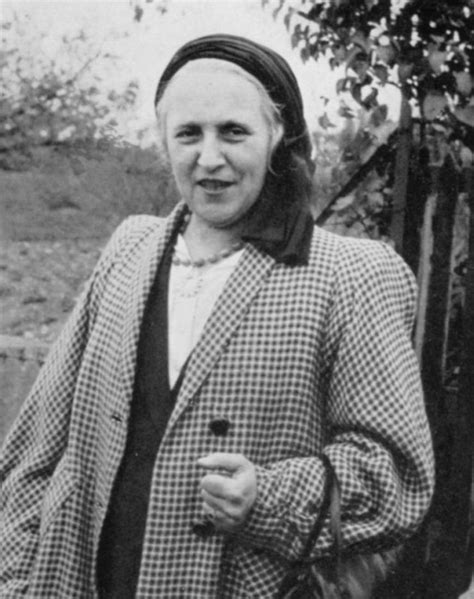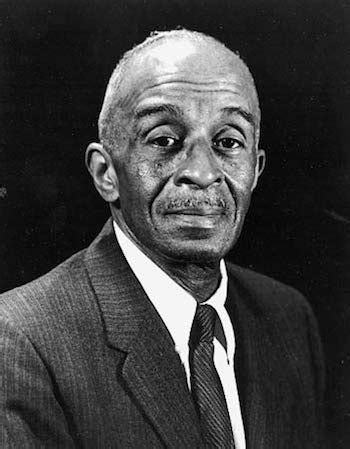A Quote by Raymond Chandler
Writers who get written about become self-conscious. They develop a regrettable habit of looking at themselves through the eyes of other people. They are no longer alone, they have an investment in critical praise, and they think they must protect it. This leads to a diffusion of effort. The writer watches himself as he works. He grows more subtle and he pays for it by loss of organic dash.
Quote Topics
Related Quotes
In company with people of your own trade you ordinarily speak of other writers' books. The better the writers the less they will speak about what they have written themselves. Joyce was a very great writer and he would only explain what he was doing to jerks. Other writers that he respected were supposed to be able to know what he was doing by reading it.
The people who review my books, generally, are kind of youngish culture writers who aspire to write books. When someone writes a book review, they obviously already self-identify as a writer. I mean, they are. They're writers, they're critics, and they're writing about a book about a writer who's a critic. So I think it's really hard for people to distance themselves from what they're criticizing.
There's a secret to get through loss, pain and grief. If we're alone we can't see who we are. When we join the club, other people become the mirror. Through them, we see ourselves and gain an understanding of what we're going through. Then slowly, real slowly, we learn to accept who we see in the mirror. Then you become the mirror for them; by being honest about who you are, you'll help them learn to love and accept themselves.
What is difficult to understand is that without conscious effort, nothing is possible. Conscious effort is related to higher nature. My lower nature alone cannot lead me to consciousness. It is blind. But when I wake up and I feel that I belong to a higher world, this is only part of conscious effort. I become truly conscious only when I open to all my possibilities, higher and lower. There is value only in conscious effort.
I told [a big investor in The New Yorker] - I was complaining the way writers complain.I said`[Bill Shawn] pays very well, but a lot of my pieces don't get in,' and that was true of most of the writers there.But he pays you for them, that was very nice of him. This guy didn't think it was very nice. He figured, `Oh, my God, that's more of my investment gone,' and paying money to writers for not printing them. That became, apparently, one of his weapons against Shawn when he - in the corporate skirmishes that went on. It was a bad mistake on my part.
Learning is the first step in making positive changes within yourself. Other factors are conviction, determination, action & effort. Learning & education help develop conviction about the need to change & increase your commitment. Conviction then develops into determination. Next, strong determination leads to action: a sustained effort to implement the changes. This final factor of effort is critical.
The other day, I saw a blog post where a woman wrote about why she was unfollowing me and that made me feel incredibly self-conscious and embarrassed about my tweets. I also feel more exposed now that I've become a more visible writer but then I try to get over all that and just use Twitter the way I want.
Many young women are less whole and androgynous than they were at age ten. They are more appearance-conscious and sex-conscious. They are quieter, more fearful of holding strong opinions, more careful what they say and less honest. They are more likely to second-guess themselves and to be self-critical. They are bigger worriers and more effective people pleasers. They are less likely to play sports, love math and science and plan on being president. They hide their intelligence. Many must fight for years to regain all the territory they lost.
When I've taught writing to five, six, and seven year olds, it's not very different than talking to an adult writer. They're writers then, and when they get to be young teenagers they're not anymore. You might go and talk to them about writing, and they'll be very self-conscious or will have detached themselves from the group.
..few writers like other writers' works. The only time they like them is when they are dead or if they have been for a long time. Writers only like to sniff their own turds. I am one of those. I don't even like to talk to writers, look at them or worse, listen to them. And the worst is to drink with them, they slobber all over themselves, really look piteous, look like they are searching for the wing of the mother. I'd rather think about death than about other writers. Far more pleasant.
I think that the Pulitzer Prize is definitely a blessing, but it's also a curse. Because I think that it is a blessing because the work gets more exposure, especially that particular play and then other works of yours too. And then it's a curse because people anticipate that you will write something like you've already written. I think it's really wrong because, you know, I think, as a writer, I'm in a process and I'm somewhere in that process, and I need to continue to develop.




































